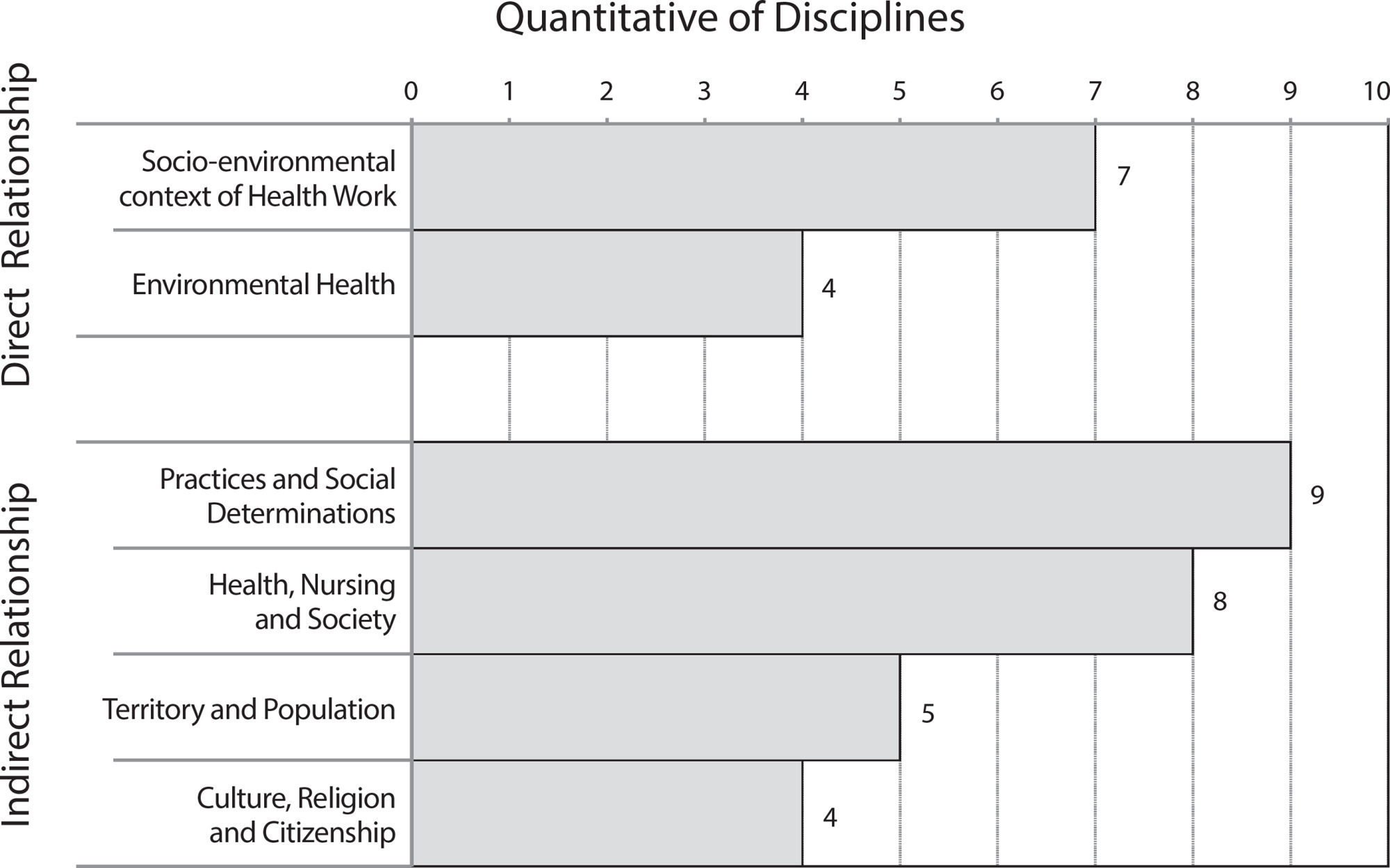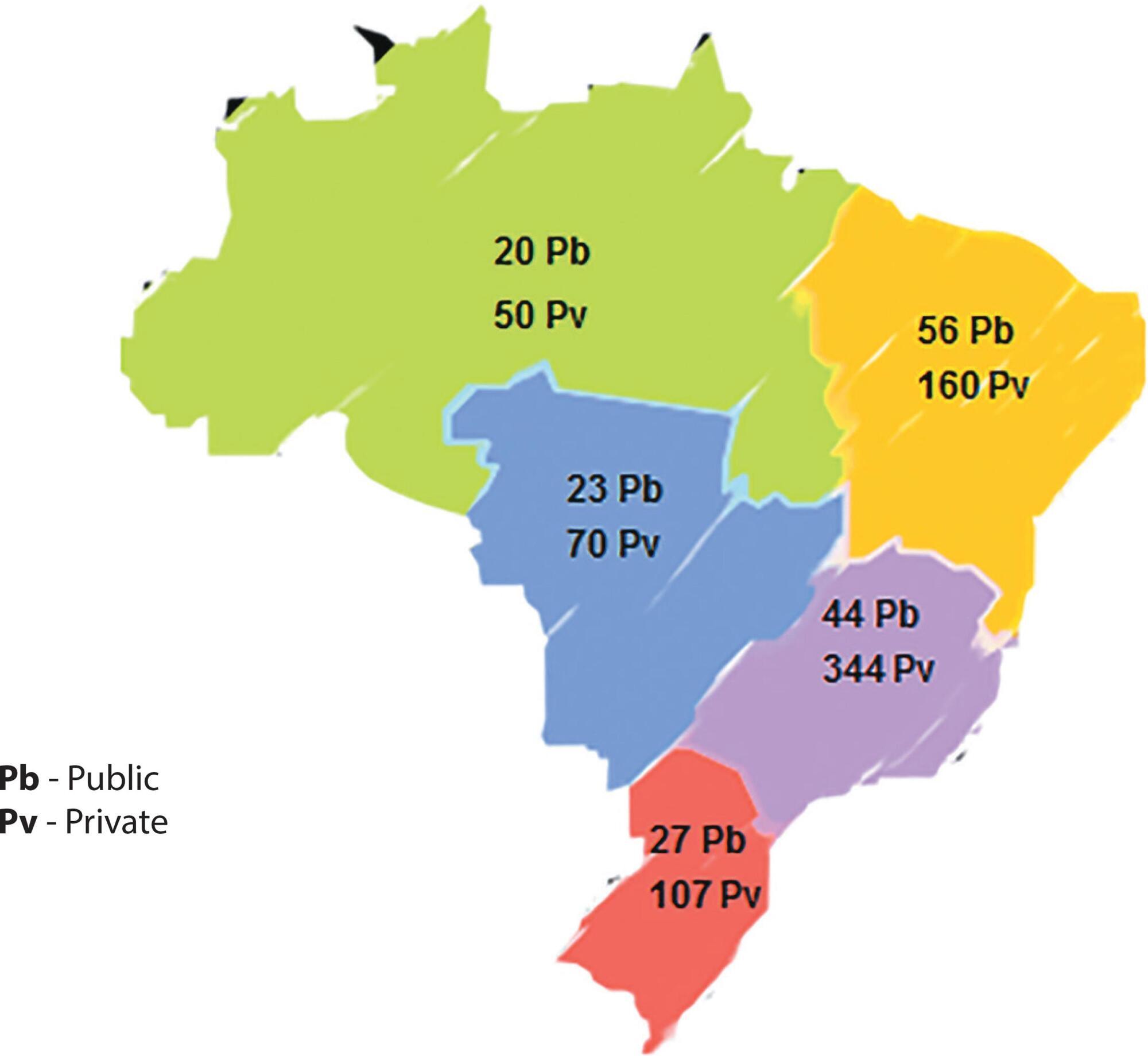-
REFLECTIVE
Perioperative nursing education in Brazil: reviewing the past to survive the future
Revista Brasileira de Enfermagem. 2022;75(3):e20210331
09-23-2022
Resumo
REFLECTIVEPerioperative nursing education in Brazil: reviewing the past to survive the future
Revista Brasileira de Enfermagem. 2022;75(3):e20210331
09-23-2022DOI 10.1590/0034-7167-2021-0331
Visualizações0ABSTRACT
Objectives:
to summarize historical aspects related to perioperative nursing education in Brazil and to outline future perspectives.
Methods:
a descriptive-reflexive essay about the historical process of Brazilian perioperative teaching at undergraduate and graduate levels.
Results:
the reflection addresses the historical axes of perioperative nursing, teaching perioperative nursing, curriculum changes, graduate studies and relationship with the perioperative period and trends in perioperative nursing education. Curriculum changes reduced time available for teaching and learning, with a focus on the perioperative period, and diluted contents of surgical nursing in other subjects, which could cause irreversible losses for generalist nurses’ training.
Final Considerations:
when reviewing historical aspects of national nursing curricula, it was found that the nomenclature perioperative nursing was never used in the curriculum, however, the surgical area has always been contemplated in undergraduate and graduate studies. Future trends indicate the need to integrate themes and prepare professionals with perspectives focused on global health and technology.
Palavras-chave: BrazilEducation, Nursing, BaccalaureateEducation, Nursing, Diploma ProgramsEducation, Nursing, GraduatePerioperative CareVer mais -
ORIGINAL ARTICLE
The approach to the environmental issues in postgraduate nursing in Brazil
Revista Brasileira de Enfermagem. 2021;74(1):e20200296
03-24-2021
Resumo
ORIGINAL ARTICLEThe approach to the environmental issues in postgraduate nursing in Brazil
Revista Brasileira de Enfermagem. 2021;74(1):e20200296
03-24-2021DOI 10.1590/0034-7167-2020-0296
Visualizações0Ver maisABSTRACT
Objectives:
to analyze the insertion of environmental issues in the postgraduate stricto sensu in nursing in Brazil.
Methods:
quali-quantitative research, of exploratory approach, with documental research in the Sucupira Platform and in sites of the 112 courses stricto sensu in Nursing in Brazil, in 2018. We analyzed the curricular matrixes; course menus; teaching profile; dissertations and thesis (2004-2016); and bibliographic productions of the four-year evaluation 2013-2016. The analysis of quantitative data was performed by statistical methods; and qualitative data, by the Content Analysis Technique, outlined by Bardin.
Results:
the results demonstrate incipiency in the treatment of environmental issues. Regarding the theme, we highlight those that refer to socio-historical-cultural aspects in relation to the more direct environmental approach and facilitator of environmental conservation and consequent promotion of health.
Final Considerations:
The analysis allows identifying the fragility of the environmental approach in the analyzed programs, being necessary to improve the cross-sectionality of environmental issues.

-
ORIGINAL ARTICLE
Nursing education: mapping in the perspective of transformation
Revista Brasileira de Enfermagem. 2020;73(3):e20180749
04-22-2020
Resumo
ORIGINAL ARTICLENursing education: mapping in the perspective of transformation
Revista Brasileira de Enfermagem. 2020;73(3):e20180749
04-22-2020DOI 10.1590/0034-7167-2018-0749
Visualizações0ABSTRACT
Objective:
to construct a theoretical, field and analysis mapping of nursing education in the context of public education policies in Brazil.
Method:
a descriptive study with a mixed approach of investigation, having as theoretical-analytical instruments the studies on maps construction (theoretical, field and analytical), which allowed the distribution, imbalances, tendencies and contradictions verification of the phenomenon studied.
Results:
the disordered expansion of vacancies in nursing has been occurring in a disorganized, asymmetric way and directed to the distancing of the State in the assistance to the educational sector, as well as the consequent privatization of education and reaffirmation of social imbalance of regions with the lowest economic power.
Final considerations:
the study made technological, scientific and academic contributions possible and showed that public policies directed intense and disorderly expansion of courses/vacancies, indicating the need to establish strategies that can promote actions to strengthen the quality of nursing education.
Palavras-chave: EducationEducation, Nursing, GraduateEducation, ProfessionalNursingNursing EducationVer mais
-
ORIGINAL ARTICLE
Pleasure-suffering duality in stricto sensu graduate programs in nursing: between bridges and walls
Revista Brasileira de Enfermagem. 2020;73(2):e20180533
02-17-2020
Resumo
ORIGINAL ARTICLEPleasure-suffering duality in stricto sensu graduate programs in nursing: between bridges and walls
Revista Brasileira de Enfermagem. 2020;73(2):e20180533
02-17-2020DOI 10.1590/0034-7167-2018-0533
Visualizações0Ver maisABSTRACT
Objectives:
to understand the pleasure-suffering duality experienced by students in stricto sensu Graduate Program in Nursing.
Methods:
qualitative, integrated single-case study based on the Psychodynamics of Work. The setting was the stricto sensu Graduate Program in Nursing in Brazil. Two Graduate Programs were chosen. Data collection took place between May 2017 and April 2018, with 23 students, through interviews guided by semi-structured script and Documentary Analysis. Content Analysis was carried out.
Results:
two analysis units emerged: Situations generating pleasure: bridges built by the Graduate Program and Situations generating suffering: walls of the Graduate Program. They were discussed in two dimensions - organizational and socio-professional relations.
Final considerations:
the results can contribute to the planning of actions capable of potentiating the creation of “bridges” that lead to reach of pleasure in the Graduate Program. It impels the confrontation of suffering-generating situations for the student.
-
REFLECTIVE
A paradigmatic visionary perspective: professional master’s in nursing
Revista Brasileira de Enfermagem. 2018;71(5):2584-2588
01-01-2018
Resumo
REFLECTIVEA paradigmatic visionary perspective: professional master’s in nursing
Revista Brasileira de Enfermagem. 2018;71(5):2584-2588
01-01-2018DOI 10.1590/0034-7167-2018-0102
Visualizações0ABSTRACT
Objective:
To reflect on the key concepts of the book The Structure of Scientific Revolutions and its applicability in professional master's in nursing.
Method:
This is a theoretical-reflective study that uses the philosophical and epistemological conceptions of the philosopher Thomas Samuel Kuhn to consider its applicability on the paradigm shift of stricto sensu graduate courses in nursing. The main concepts of Kuhn were used as support: paradigm, anomaly, scientific community and scientific revolution.
Results:
The propositions of this philosopher are applied to and support the theoretical reflection on professional master's programs, contributing to clarify what would be a paradigmatic visionary perspective in stricto sensu master's models in nursing.
Conclusion:
From Kuhn's propositions it was possible to conclude that professional master's programs in nursing can break away from the dominant paradigm, strengthening a scientific revolution within the academia.
Palavras-chave: Education, Nursing, GraduateEducation, ProfessionalHealth Postgraduate ProgramsNursingTechnological DevelopmentVer mais -
EXPERIENCE REPORT
Professor training in health postgraduate studies: analysis of an experience
Revista Brasileira de Enfermagem. 2018;71(6):3115-3120
01-01-2018
Resumo
EXPERIENCE REPORTProfessor training in health postgraduate studies: analysis of an experience
Revista Brasileira de Enfermagem. 2018;71(6):3115-3120
01-01-2018DOI 10.1590/0034-7167-2017-0319
Visualizações0ABSTRACT
Objective:
To analyze a professor training experience for higher education.
Method:
This is a descriptive case report on the professor training process in the postgraduate course of the College of Nursing of Ribeirão Preto, University of São Paulo. An evaluative activity was performed to capture the perceptions and experiences of 21 graduate students who were interns of an educational improvement program. The data were analyzed following the thematic content analysis guidelines.
Results:
Three thematic categories were identified: 1) knowledge necessary for teaching practice; 2) teaching routines and practices; 3) the essentiality of mentoring.
Final considerations:
This article provides a critical approach on the formative process of human resources for higher education in health, identifying potentials and challenges. Its innovative character resides in understanding pedagogical work articulated with graduate research training.
Palavras-chave: Education, NursingEducation, Nursing, GraduateNursing Faculty PracticeStaff DevelopmentTeachingVer mais -
PESQUISA
The mobilization of nurses for the non-interruption of nursing residence
Revista Brasileira de Enfermagem. 2015;68(5):923-929
01-01-2015
Resumo
PESQUISAThe mobilization of nurses for the non-interruption of nursing residence
Revista Brasileira de Enfermagem. 2015;68(5):923-929
01-01-2015DOI 10.1590/0034-7167.2015680522i
Visualizações0Ver maisABSTRACT
Objective:
To analyze the strategies employed by nurses to maintain the nursing residence program at the Ophir Loyola Hospital and discuss the potential effects of this interruption on the state of Pará.
Method:
Social-historic research. Data were collected through primary sources, written documents, and oral testimonial; the secondary sources used were manuals and articles that approached the topic in question. The theoretical reference was based on the French sociologist Pierre Bourdieu's ideas about the concepts of cultural, social, and symbolic capital, in addition to the habitus and field concepts.
Results:
During the nurses' mobilization there was a strong political influence on the development of the crisis and the interruption of the nursing residence Program at the Ophir Loyola Hospital, with implications for the nurses' qualifications and the health care delivered to the societyof Pará.
Conclusion:
The analysis showed the prevalence of partisan political interests at the expense of social interests, culminating in the interruption of the nursing residency.



